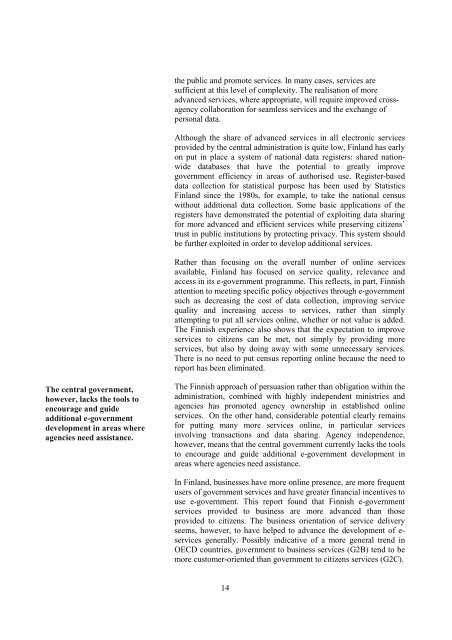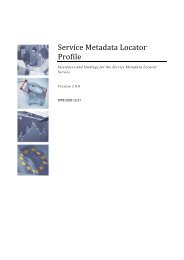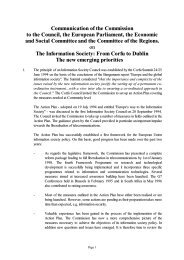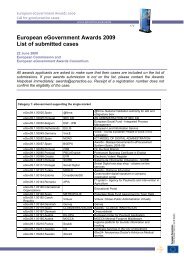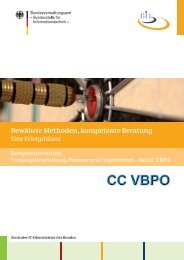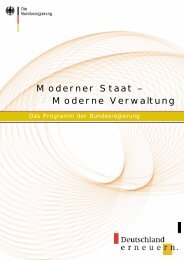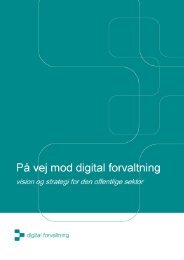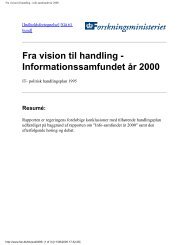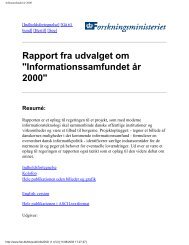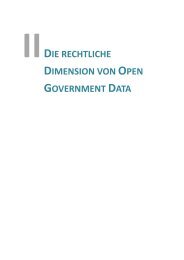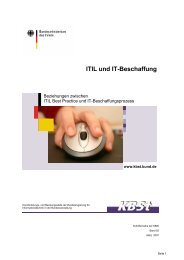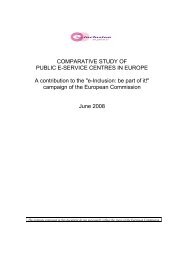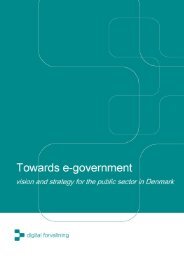e-GOVERNMENT IN FINLAND - ePractice.eu
e-GOVERNMENT IN FINLAND - ePractice.eu
e-GOVERNMENT IN FINLAND - ePractice.eu
Create successful ePaper yourself
Turn your PDF publications into a flip-book with our unique Google optimized e-Paper software.
The central government,<br />
however, lacks the tools to<br />
encourage and guide<br />
additional e-government<br />
development in areas where<br />
agencies need assistance.<br />
the public and promote services. In many cases, services are<br />
sufficient at this level of complexity. The realisation of more<br />
advanced services, where appropriate, will require improved crossagency<br />
collaboration for seamless services and the exchange of<br />
personal data.<br />
Although the share of advanced services in all electronic services<br />
provided by the central administration is quite low, Finland has early<br />
on put in place a system of national data registers: shared nationwide<br />
databases that have the potential to greatly improve<br />
government efficiency in areas of authorised use. Register-based<br />
data collection for statistical purpose has been used by Statistics<br />
Finland since the 1980s, for example, to take the national census<br />
without additional data collection. Some basic applications of the<br />
registers have demonstrated the potential of exploiting data sharing<br />
for more advanced and efficient services while preserving citizens’<br />
trust in public institutions by protecting privacy. This system should<br />
be further exploited in order to develop additional services.<br />
Rather than focusing on the overall number of online services<br />
available, Finland has focused on service quality, relevance and<br />
access in its e-government programme. This reflects, in part, Finnish<br />
attention to meeting specific policy objectives through e-government<br />
such as decreasing the cost of data collection, improving service<br />
quality and increasing access to services, rather than simply<br />
attempting to put all services online, whether or not value is added.<br />
The Finnish experience also shows that the expectation to improve<br />
services to citizens can be met, not simply by providing more<br />
services, but also by doing away with some unnecessary services.<br />
There is no need to put census reporting online because the need to<br />
report has been eliminated.<br />
The Finnish approach of persuasion rather than obligation within the<br />
administration, combined with highly independent ministries and<br />
agencies has promoted agency ownership in established online<br />
services. On the other hand, considerable potential clearly remains<br />
for putting many more services online, in particular services<br />
involving transactions and data sharing. Agency independence,<br />
however, means that the central government currently lacks the tools<br />
to encourage and guide additional e-government development in<br />
areas where agencies need assistance.<br />
In Finland, businesses have more online presence, are more frequent<br />
users of government services and have greater financial incentives to<br />
use e-government. This report found that Finnish e-government<br />
services provided to business are more advanced than those<br />
provided to citizens. The business orientation of service delivery<br />
seems, however, to have helped to advance the development of eservices<br />
generally. Possibly indicative of a more general trend in<br />
OECD countries, government to business services (G2B) tend to be<br />
more customer-oriented than government to citizens services (G2C).<br />
14


